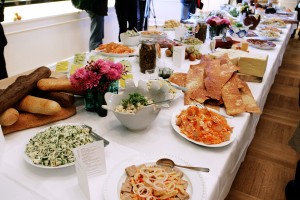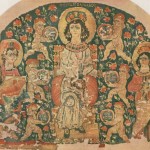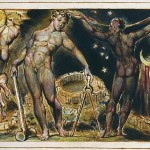On encountering the phenomenon of the Pagan revival for the first time, some people ask why there are so many different Pagan traditions.
There are many different answers to this question – here are the ones I can think of.

The varieties of religious experience
There are many different forms of Christianity, Buddhism, Islam, and so on, because different people have different values, different theologies, and different taste in ritual styles. Some people like solemn and liturgical rituals with quite a lot of formality, and where you can predict what will happen next. Others like a lot of room for experimentation and going with the flow.
Similarly, there are many different forms of Paganism, with different theologies, ritual styles, and values. And there is often as much variation within traditions as there is between traditions. For example, one Wiccan coven or individual might be animist or polytheist in their outlook; another might be more duotheist. Some Wiccan covens are more into ceremonial magic than others; some are more hierarchical, some are more consensus-based. The array of traditions on offer is quite a Smörgåsbord.
When choosing a group in whichever tradition you are attracted to, it is a good idea to attend some of their rituals and see if they fit with your values and tastes, and whether they are open to people with differing theological perspectives.
Ancient paganism was diverse
Ancient paganism probably didn’t have the concept of “religion” as a distinct tradition with a coherent set of beliefs, values, and rituals that we have nowadays as a result of the influence of Christianity and its norms.
However, each culture had its own deities and customs and values, and these form the basis of many of the Pagan and polytheist traditions that have been revived.
In Greek and Roman culture, it is well-documented that different deities had their own cults and that these were different in different regions. There were also many different schools of thought within classical paganism, such as the Stoics and the Epicureans. There were also sacred dining-clubs devoted to Bacchus, which I think we should revive. Anyone care to join me?
Contemporary Paganism is diverse
There are many different types of people with different tastes, values, and cultural backgrounds attracted to contemporary Paganism too. And accordingly there are many different traditions on offer, and varying styles of ritual within those traditions.
Being English, with some ancestors from Cornwall, I suspect it is a fair bet that I have both Celtic and Saxon ancestors, maybe even a Norman ancestor or two, so it would be hard for me to choose a particular ethnic religion such as Heathenry or Druidry. That, along with my interest in magic and ecstatic techniques, is one of the reasons I am a Wiccan. It also means I get to honour the other gods in my personal household shrine, who are from other cultures (Roman, Hindu, Sumerian, and so on).
Just plain Pagan?
However, if you are not attracted to any particular Pagan tradition, there’s no rush. You can always attend open rituals of various different traditions, or get together with like-minded others for eclectic Pagan ritual.
Just don’t feel railroaded into doing “Wicca-lite” – there are plenty of other ways of being eclectic. Observe what moves you, what you feel is sacred, and create rituals around that. They don’t have to be complicated – they may just be as simple as noticing beautiful experiences and acknowledging them as sacred.
Find out more
If you are attracted to a particular tradition, go along to any open rituals they offer, and read more about the tradition. Talk to practitioners, ask lots of questions. Have a look at the various different Pagan organisations, some of which represent specific traditions.
This post is part of a series, Paganism for Beginners. All the posts in this series will appear in the category ‘A Beginner’s Guide’. You can find them by clicking on the ‘FILED UNDER’ link at the foot of the blogpost.












